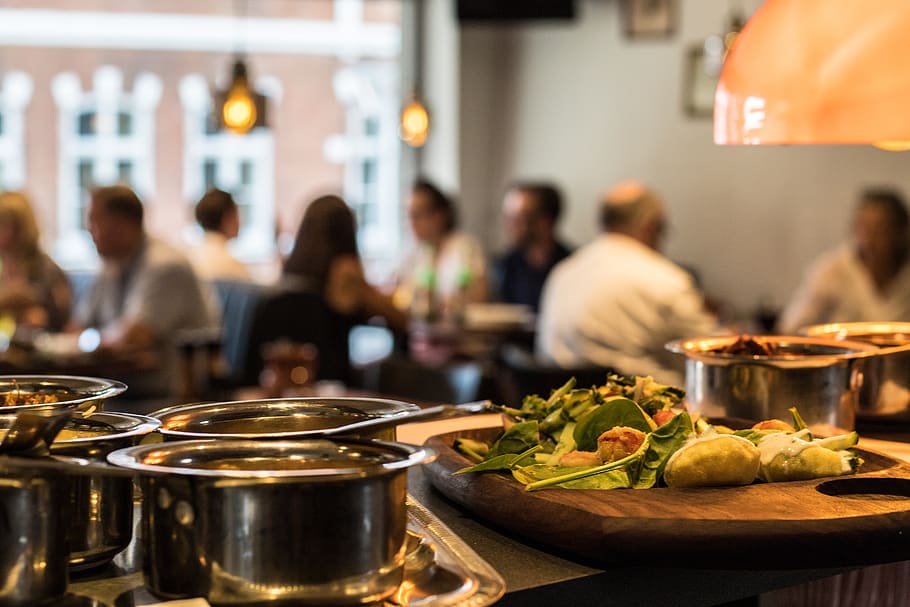You have no items in your cart. Want to get some nice things?
Go shopping
The two men who approached us in Grand Central must have smelled it on us – the tension of coming apart. We tracked the spoor of fissure. Erik and I were standing in the lower-level dining concourse, a few paces from the fried chicken kiosk, allowing mouth-watering wafts of buttermilk batter, gravy-soaked biscuits, and cloying maple syrup to fill the vacancy between us. I reached for Erik’s hand. Limply, he surrendered it.
Hundreds of strangers swept through the station. Peak hours, midtown’s Friday evening hum sped across Park Avenue on the backs of taxis and commuters sprinting to catch their shuttles. In the main hall beneath the celestial ceiling, men with briefcases wheeled past gaggles of tourists, eliciting protective glares from petite mothers guarding their broods. A team of baseball players in pinstripe uniforms idled single-file against the ticket machines. Schlepping her chihuahua in a magenta duffle an elderly woman nearly tripped over a pair of weary teen boys seated on the floor. The communal air sagged stale with congestion.
For Columbus Day weekend, a “holiday” I was loath to celebrate, we were returning home. Essential to the maintenance of our sanity, the Metro-North was our getaway car, equipped to flee every half hour from the overwhelming metropolis we, and everyone else we knew, loved only sometimes. Whenever our schedules – my rigorous university course load and his lamentable post-grad office job – permitted, we stayed at my father’s place upstate. All five thousand square feet of echoey space, the open floor plan, though presumably oppressive for its permanent residents, my brother and father trapped in expectant silence after my mother’s death and my relocation, offered Erik and me coveted breathing space. We’d been suffocating in Erik’s East Village shoebox.
Upstate meant home for both of us. We’d grown up in the same town, though we knew each other only peripherally until much later, until a mutual friend’s Koreatown karaoke party early in college. Across the DUET 35 VIP room Max’s venture capitalist parents had booked for his twenty-first, whose linoleum floors shone slick with something (congealing tequila?) beneath the discotheque strobe lights, Erik lounged alone in the corner booth. His torn Dickies exposed a scraped knee. He nursed a bottle of Bombay Sapphire, tipping the blue tonic between his full lips. Insatiable but bored. With his free hand he idly tucked and untucked his long hair behind his ears, a black bob which accented his razor jawline, greasy and androgynous in that way that rich Lower East Side skaters put on. His aloofness sparkled amid the jubilee. Liquid-confident, haloed by a nebula of champagne, I gravitated toward him. His bedroom eyes, dark and huge and round like the moon rose with an expectant brow to meet me. Even when staring straight ahead a sliver of white always cradled his irises from below.
The condition is called sanpaku, he and I would learn almost a year later. We were researching the anomaly to bolster his modeling portfolio in preparation for a fashion week casting. “It’s the only thing that makes me special,” he said, typing furiously into Google: whites under eyes always visible? I disagreed with him, as I always did, dismissing insecurities I found preposterous: he was the most beautiful person I had ever known. “Everything about you is special, Erik,” I murmured. We found a dictionary of Japanese loanwords.
For thousands of years, people of the Far East have been looking into each other’s eyes for signs of this dreaded condition. Any sign of sanpaku meant that a man’s entire system — physical, physiological and spiritual — was out of balance. He had committed sins against the order of the universe and he was therefore sick, unhappy, insane, what the West has come to call “accident prone.” The condition of sanpaku is a warning, a sign from nature, that one’s life is threatened by an early and tragic end.
Erik quit the webpage with a violent click. Anything prophetic triggered his anxiety. He eschewed horoscopes, fortune cookies, even refused to consult the weather app, believing that regardless of the forecast, the act of inquiring alone would anger the universe and summon unrelenting rains. “It doesn’t mean anything,” I whispered.
In the karaoke joint the night we met I strode past our carousing friends, their faces blurring into neon-lit bacchanalia, and outstretched my hand, offering Erik the other microphone as Frank Ocean’s seminal “Thinkin Bout You” pushed its way to the top of the queue. In exchange he handed me the bottle and we downed fiery gulps in succession. A lubricant. In moments we were singing and spinning about the event space, climbing atop the furniture and sweating from the fever of our revelry.
Or do you not think so far ahead? I sang with the tang of his gin fizzing on my tongue, the rush of temptation in my belly. He answered: ’Cause I been thinkin’ ’bout forever…
He was so different from me. Neither of us, not for lack of trying, could earnestly care about the other’s patent raisons d’êtres. An English student and aspiring writer, I read him passages from my favorite essays, novels, poems, praying something would ignite in him an intellectual interest. Halfway through the first page of “The Blue of Distance,” with a gruff snore, he fell asleep in my lap. Everywhere he went he carried around his Fujifilm point-and-shoot. At first I believed his photography connected us as artists, but what he captured – naked girls, his SoundCloud rapper friends – did not inspire me. He was obsessed with fame and wealth, the products his idols put out to achieve that success he found far less consequential. He prized celebrity culture. Though part of my studies hinged on aesthetics, we could not find missing ground in Keats.
Nevertheless, our shared stop on the train bound us together. Shared landmarks supplanted missing commonality: an egg sandwich from Cameron’s 24-hour deli, insider knowledge of which local gas station was cheapest (the Mount Kisco Speedway), late-night drive-in hookup spots, adolescent summers cradling Lake Waccabuc’s rope swing. Without effort on either of our parts, intimacy preexisted. We found in each other the comfort of home.
Upstate we would drive around in my gray Subaru for hours, pointing out the cornerstones of our parallel but separate childhoods. The sprawling nature reservation down the road from my house relieved our lungs, black from Manhattan smog and secondhand smoke, with ripe gulps of oxygen. The trees in whose shade we had as teenagers smoked shitty joints with our respective friend groups revived us. In his elementary school parking lot where I had played youth basketball we made love at dawn.
When Erik’s parents moved to South Carolina my Westchester refuge became his. My queen-size bed forced neither of us over the edge, an alleged habit of mine he often bemoaned. I only ever wanted to be closer to him. Even without the addition of my body, he scarcely fit on his own full mattress. The four inches below his ankle bones spilled out unblanketed onto the hardwood. “You squish yourself unwieldingly against me!” he’d complain the morning after a fitful night’s sleep. Unyieldingly, I never corrected him. “The air conditioning was too high,” I’d demur. Low blood sugar and waning anorexia, my body ran cold. Incompatible with his claustrophobia and predisposed clamminess – all six feet of him lusted for space. He never understood that it was his warmth I sought.
We weren’t speaking as we waited for the train. Even if we were, there wouldn’t have been much to say. Probably I told him I was tired. I had been doing that often. Scapegoating exhaustion for disconnect, unhappiness. If my weariness were physiological, or otherwise an imperious plight of quarter-life weltschmerz, the relationship itself obliged no second thought. Probably I apologized. (For what – the tiredness? – I was never sure.) He would have said, in his way that he always did, “It’s okay,” in spite of the fact that I did not want my apology validated, only dismissed – you have nothing to be sorry for. As I try now to recall the way he spoke the boilerplate his voice eludes me. I do not remember whether his tenor raised an octave or dropped, which iambs he enunciated. I cannot conjure his voice at all. It’s only silence now.
The two men must have approached us then.
A round-faced yuppie strode toward us with confident step despite his stubby stature, his Ferragamos clacking against the tile floor. He was trailed by a taller gentleman, probably twice his age, who wore a less nice, looser fitting version of the same professional suit. They were complements, Showalter and Grimsrud, perfect foils. “Hello,” the shorter man spoke first. “I don’t mean to disturb you,” he began with telemarketer buoyancy.
I’d been a New Yorker long enough to be suspect of chatty strangers. Both Erik and I armed our guards. I drew my hand from his and brought it to the wallet bulge in my jeans pocket, I’m sorry but I don’t have any cash on me. The increasing tightness in Erik’s jaw indicated a similar wariness.
“My buddy and I,” he smiled at his lanky companion, “are conducting an experiment.” The tall man spread his lips in a closed-mouth grin.
“I’m Aleksander,” the tall man finally spoke, revealing an unplaceable eastern European accent.
“And I’m Jason! We’ve been workplace associates for a little while now. I was hired to his department just six months ago but we’ve been fast friends… isn’t that right Aleks?” The Soviet offered a dumb, puerile nod. “Anyway, we decided to try something a little different when we got off work this afternoon. Our office is just a few blocks away, so we came here to play a—” his smirk turned sinister. “A sort of game.”
Erik’s anxiety bubbled over beside me. He never was one for surprises.
“I love games,” I said. “Go on!”
I could feel Erik’s scowl, boiling with pique, searing into my profile.
“We’ve been going around to different pairs of people and guessing how long they’ve known each other and what the nature of their relationship is. If we’re right, and you agree to it, you each have to give us a dollar. If we’re wrong, we pay you.”
Erik’s dark eyes narrowed. Still, the white Cheshire grin undergirded his irises. This was far worse than any magic eight ball or tarot reading. To Erik, the speculative became manifest. Psychosomatic divination. Anything could be willed into being just by conjecture.
“Okay!” I consented for us both. “Give us your best shot.”
The two men stepped back and analyzed us. Scrutinizing our faces, our body language, the proximity of our hips. Suddenly the fluorescent bulbs overhead felt too hot, too bright like the x-ray light dangling above a dentist’s chair. Would they think we were married? I supposed Erik’s burnout added a few years to his complexion; adult union wouldn’t have been unfathomable.
Their faces contorted in cogitation. They turned their backs to us and whispered. Finally, they wheeled back.
“Okay,” said Jason. “We’ve come to a consensus.”
I nodded him on emphatically.
“After rigorous deliberation, we surmise—”
“The two of you just met!” Aleks barked.
Heat shot through my body. I felt naked. Erik said nothing. I forced a laugh to circumvent the dreadful silence, Haha! No! We’re a couple! We’ve been dating pretty seriously for two years!
Jason and Aleksander exchanged looks of pity.
“Ah,” Jason spoke at last. “Our apologies.” Clapping his hands together, then pointing both forefingers like pistols, “Well, let me grab your cash then…” he began to fumble through his bag.
“No, no. That’s okay. We appreciated the fun. Keep your money. We’ve got our train to catch anyway,” I forced through my teeth.
“Oh, are you sure?” I nodded solemnly. “Goodbye then.”
“Bye,” I said, seizing Erik’s hand and dragging him toward the platform.
Neither of us spoke as we descended the steps. We boarded the train without a word. He turned into a two-seater, plopping next to the window, and I floated in beside him. The stiff plasticky cushions provided no comfort, pressing unforgivingly into my back. The train began to move, homebound.
Nearly two months later when I arrive at the Van Leeuwen on 7th Street the toasty interior teems with Sunday afternoon verve. Yuppies paw at laptop keyboards and slurp down $6 lattes while teenage babysitters purchase vegan ice cream for pairs of schoolchildren. As I burst through the entryway a gust of heat from the overhead radiator wafts the salty sweet ambrosia of fresh-baked waffle cones against my frozen face. My stomach jolts. Erik is not here. It’s been three weeks since we last spoke.
After ordering myself a chamomile tea – caffeine would only exacerbate my precarious mania; if anything I needed beta blockers – I park at a high table beside the floor-to-ceiling windows. After a few minutes of idly inhaling the floral steam, the liquid still so hot I scald my tongue from several diffident attempts to sip it, I hear through the door, muscled ajar as a family of four escapes the unbearable November tundra, the unmissable, nauseating tread of skateboard wheels on sidewalk. A figure in black materializes on the stoop. Erik’s stygian eyes meet mine through the glass – foggy from the temperature asymmetry. He is wearing an outfit I know well: a miniature beanie of the sort which distinguishes his ilk (dubiously artistic cigarette smokers of Alphabet City), his beloved Thrasher sweatshirt, dark work pants, cuffed, bearing tears from repetitious falls, Old Skool Vans. Familiarity seizes my chest. He lets in the blustering chill. As he slinks through the buzzing crowd nearer and nearer to my perch I take inventory of what is different. The darkness which characteristically hollows his face, carving his cheekbones and underscoring his heavy, deep-set eyes has metastasized. He, already underweight as a matter of style or else idiosyncrasy, looks fifteen pounds lighter. He pulls out the opposite chair. For a moment he stands there, his hand clutching the cross rail, as if unsure whether to bother sitting at all. Fatigue drags his stare straight through me.
“Hi,” I manage. He attempts something like a smile and finally floats around to the aluminum seat. At first we say nothing as I twirl a coffee stirrer through my cup, spilling loose dried herbs from the teabag. The tiny black leaves float to the surface of the water. Tasseography.
When I muster the courage to return to his face he is trembling. His furrowed brow quivers. His corneas, reddening, glisten. I wonder if he will cry. He cries rarely, once every few months, if that – far more frequently once we’d started dating than he ever had before. I regarded it auspiciously, a step toward emotional awareness. More in touch with his feelings. Maybe I was just hurting him.
“It’s good to see you,” I say. He snorts. He removes his thawing hands from his sweatshirt pocket and places them on the table inches from mine, compulsively running his fingertips over his cuticles, a mannerism I’d always found irksome and distracting. I clutch my cup a little tighter.
“I’m going to get something to drink,” he says and thrusts backward. The chair feet shriek against the tile, attracting glares from adjacent patrons.
He returns with an Americano, black, no sugar.
“Careful!” I sputter as he lifts it to his lips. “It might burn you.”
He draws a long breath and places the cup down in front of him.
I say finally, “I’ve missed you.”

About Hannah Seidlitz
Hannah Seidlitz is an NYU MFA candidate who loves neo-noir and lesser known sweet potato varieties. You can find her work in QZ, Electric Literature, Entropy Mag, and elsewhere. Most importantly, Klytemnestra is her desert-island favorite character. Sorry Agamemnon.




